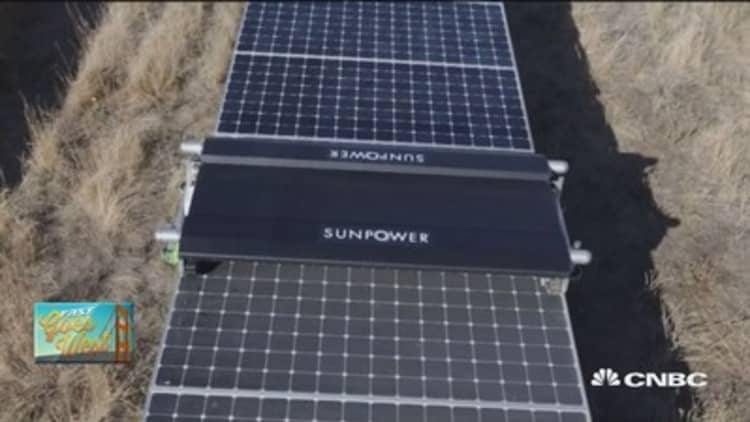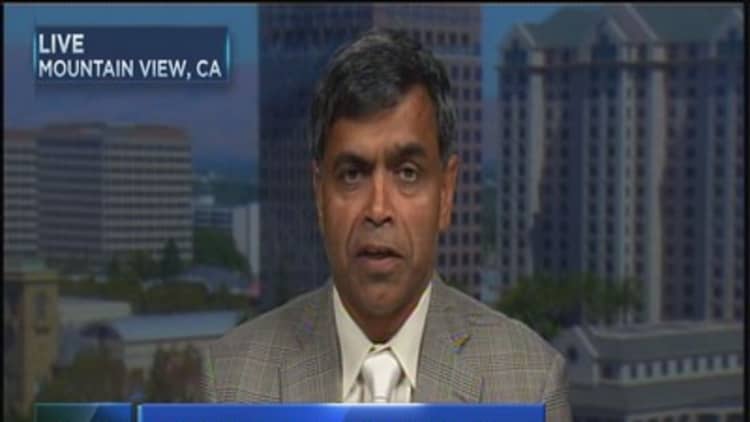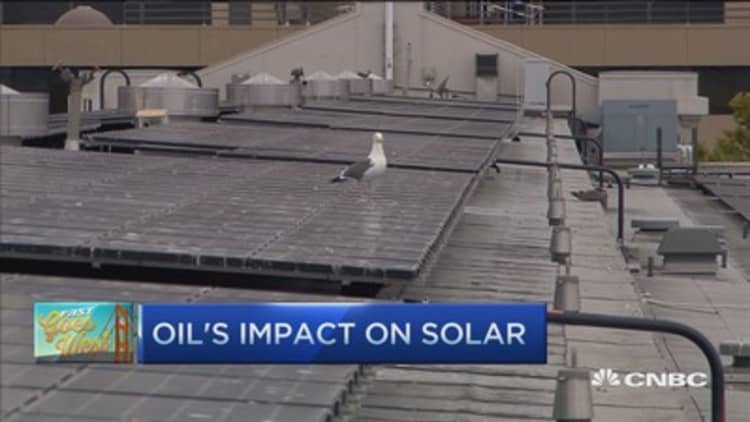Harry Reid has long advocated for renewable energy in Congress, but now the senator is wading directly into an ongoing battle over rooftop solar power in his home state of Nevada. (Tweet This)
In an interview with the the Las Vegas Sun last week, the Nevada congressman shared his belief that the state's largest utility, NV Energy, is taking an aggressive stance that could thwart the residential solar industry. Warren Buffett's Berkshire Hathaway acquired the utility in 2013.
Reid, a Democrat who is the Senate minority leader, was referring to a proposal by NV Energy that could deal a blow to Nevada's rooftop solar industry, according to solar supporters.
The proposal, submitted to the Public Utilities Commission of Nevada (PUC), would add extra charges, known as demand charges, for all utility customers in the state. "These charges are based on the specific costs that the companies incur to provide electric service to customers who install intermittent, renewable generation," reads the proposal.
But proponents of a growing rooftop solar industry are concerned with one particular line in the proposal: "...a customer who installs renewable DG [distributed generation] might end up paying more for energy when the cost of buying or leasing the system, or purchasing the output of the system is taken into consideration."
Read MoreThe sleeping giant of the solar industry: Florida
CNBC has previously reported on the battle in Nevada and elsewhere between a growing rooftop solar industry and power utilities. At the heart of the issue is a cap on the number of residential solar units that are eligible for "net metering credits." Customers who generate their own power are able to send the power back to the grid for compensation from the utility. But that holds true only as long as the state's total solar-generated energy falls under a 3 percent cap.
The pro-solar side has brought together unconventional political backing that includes Libertarian-minded conservatives such as Barry Goldwater Jr.
The commission holds a one-day public hearing on Friday to discuss temporary net metering rule changes. The PUC told CNBC that it could not comment on pending decisions, but did say that it must vote on the permanent net metering rules by Dec. 31 of this year.
Bryan Miller, senior vice president of public policy at California-based solar energy company Sunrun, is not pleased with the proposed changes to the net metering system, at least not as they're planned.
"Demand charges are so complicated that I can't even tell you what they are," he said. "The only responsible thing the commission can do is not change the current rules."



Kevin Geraghty, vice president of energy supply at the utility, said that a cap wouldn't be necessary in the first place if the way customers with solar were charged was different.
"It's just like solar energy was an evolution, rate design too needs to change," he said.
Read MoreSolar energy's unexpected conservative backers
Geraghty said that currently, all power customers, regardless of whether they have rooftop solar, are charged for the amount of power they consume. The argument is that although solar customers are using less power, the utility still has to maintain its level of operations fully to serve as a backup in case solar power cuts out. So, he said, a customer with solar will never experience a flicker or shutoff in the event that the solar panels malfunction. Therefore a demand charge that takes into account that infrastructure cost is necessary, he said.
Essentially, the cost of maintaining the electrical grid—which is borne by the utility—must be shared by all customers, irrespective of their energy source, Geraghty said.
"Solar power is OK, but it has to be done in the right way where all customers pay for use of the grid," he said. "In our existing rate structure there are absolute clear costs shifting from solar customers to nonsolar customers, thus the need for a demand charge."
CNBC reached out to Berkshire Hathaway several times but did not receive a response.
Although some critics from the solar industry point fingers at Berkshire Hathaway or even Warren Buffett himself, Lawrence Cunningham, a professor of law at George Washington University, said that the Berkshire model does not work in such a way that decisions for subsidiaries are made at the holding company level.
Read MoreAmericans using most renewable energy since 1930s
"The pro-solar people cannot be confident to invoke Warren's name in this debate, because the exact decision-making process is undisclosed; and they are on thin ice to invoke him personally because the basic Berkshire model would suggest that he is not personally involved," he said.
Berkshire Hathaway Energy, a subsidiary of the holding company that owns NV Energy, did not immediately respond to CNBC's request for comment.


